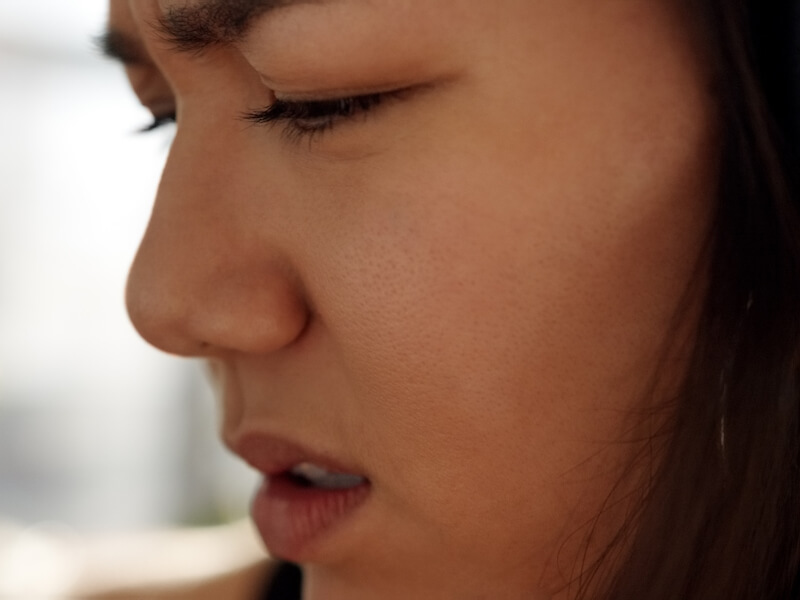
As you probably recognize, prolonged periods of stress aren’t healthy for the body. Stress can cause significant muscle aches and headaches. But did you realize stress can also result in tinnitus, a ringing, buzzing, or clicking in the ears?
Stress isn’t the only thing that can trigger tinnitus, it can also be caused by a sinus infection, loud noises, and other factors. Let’s have a look at a few potential causes of that aggravating noise in your ears.
How to Distinguish Unhealthy Stress
How does stress relate to tinnitus? It’s often easy to take for granted how serious the medical impact of stress can be on our bodies. Ignoring stress is a bad idea.
Healthy Stress
Temporary stress can actually be a very motivating factor with regards to accomplishing duties. If you’re facing a deadline and need to focus on completing a project, stress can be an ally by providing the boost of energy necessary to get the job done.
But temporary, healthy stress and chronic, unhealthy stress are two completely different things. Healthy stress helps you accomplish a goal without harming your body. Unhealthy stress is harmful for your body.
Unhealthy Stress
Usually, an irrational fear is the trigger of unhealthy stress. When an individual remains in a heightened state of anxiety, the outcome is often unhealthy stress.
In dangerous conditions, the fight or flight response is a normal reaction but it also is associates with unhealthy stress. When a person stays in a hyper-stressful state for a long period of time, it can lead to harmful physical symptoms.
Worrying
Worrying is a really common cause of unhealthy stress. The importance of a relationship or situation can often be exaggerated. We might have ourselves convinced that we said or did something to hurt our chances at a promotion. Unreasonable worrying can lead to invasive, seemingly unmanageable thoughts.
Intrusive Thoughts And Unhealthy Stress
We might think that we are falling behind and failing to fulfill our day-to-day tasks. Fixation, perpetual internal dialog, and even panic attacks are a common part of this type of stress. Inevitably, our unhealthy stress wears on our bodies if we don’t take steps to curb these thoughts.
Usually, unhealthy stress affects the upper part of the body by creating muscle tension and pain. The shoulders, neck, head, and jaw are areas that can be affected.
Anger And Jaw Tension
Have you ever heard someone express their anger as jaw clenching? Stress, worry, anger, and intrusive thoughts commonly come with jaw strain.
Pressure can be put on the fragile bones of the eardrum and inner ear by continuous tension. Ringing in the ears can be the outcome.
Sinus Infections And Ear Strain
From sore throats to stuffy noses, sinus infections produce lots of unwelcome symptoms.
Sinus infections cause headaches, sinus pressure, and pressure in the ears. These issues can trigger ringing, buzzing, and clicking in the ears.
A stuffy nose often spreads to the ears during the course of a sinus infection. Clogging in the ears and extreme pressure on the eardrum will build up because of the accumulated earwax this produces. And with this comes ringing in the ears.
You might not need to see a hearing specialist if the ringing is being caused by a sinus infection, as the symptoms could improve naturally. If the ringing lasts for more than a few days, however, you should schedule an appointment with a hearing professional.
Extended Exposure to Loud Noises
The intermittent music performance probably won’t cause long-term ear-ringing. However, you might be putting stress on the fragile parts of your ear if you regularly expose yourself to intense sound.
Ringing, clicking, or buzzing can be the result when the eardrum and inner ears are put under the enormous strain of continual exposure to intense noises.
Above and beyond ringing in the ears, temporary or even permanent hearing loss can be the outcome of repeated exposure to loud sounds. It’s essential to safeguard your hearing from the elements and listen to music at a sensible volume level.
Protecting Your Ears
Whether caused by stress, muscle tension, an illness, or loud noises, tinnitus is nothing to ignore. It’s best to have your ears examined by a hearing professional on a regular basis. If you think the ringing in your ears has a significant underlying medical cause, you should get them checked for your peace of mind.